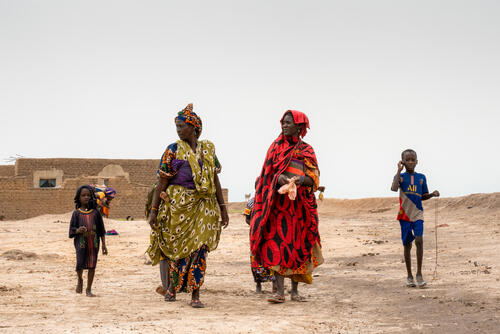The border areas of Mali, Burkina Faso and Niger form an area known as the Central Sahel, which has become the epicentre of a humanitarian and insecurity crisis. It began in 2012 in northern Mali and has since spread to central Mali, as well as to northern Burkina Faso and western Niger.
The emergence and proliferation of non-state and state armed groups has exposed communities to attacks, targeted killings, abductions and harassment. Millions of people are affected by conflict and forced displacement and need humanitarian assistance.
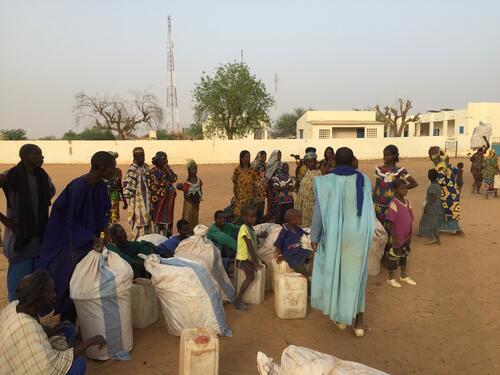
In central Mali, the security situation is deteriorating as a result of military operations and a rise in inter-communal violence between ethnic groups. For local communities, this has led to additional limitations of movements and barriers to accessing healthcare.
Since the beginning of 2020, increased attacks in Douentza, in Mali’s Mopti region, have led to the displacement of more than 7,000 people. Many have sought refuge at a site the authorities have set up in Boni or with host families.
Food insecurity is expected to worsen among both the displaced and host communities if urgent humanitarian interventions are not carried out. Across Mali, the number of food insecure people has reached its highest level since 2016. The government announced a food and nutrition emergency on 7 April 2020.
Our projects in Mali
MSF teams work around the country to provide medical and humanitarian assistance to the most vulnerable people in urban and rural areas. When COVID-19 arrived in Mali, MSF teams supported the response in multiple locations.
Measles vaccinations in Timbuktu region
In September 2020 in Timbuktu region, northern Mali, we worked with the Ministry of Health to carry out a three-stage mass measles vaccination campaign targeting over 60,000 children aged between 6 months and 14 years. The children and the people accompanying them were screened for COVID-19 and treatment assured for suspect cases. The campaign targeted 12 health zones, some in urban areas and others in outlying areas that our staff used dug-out canoes to reach.
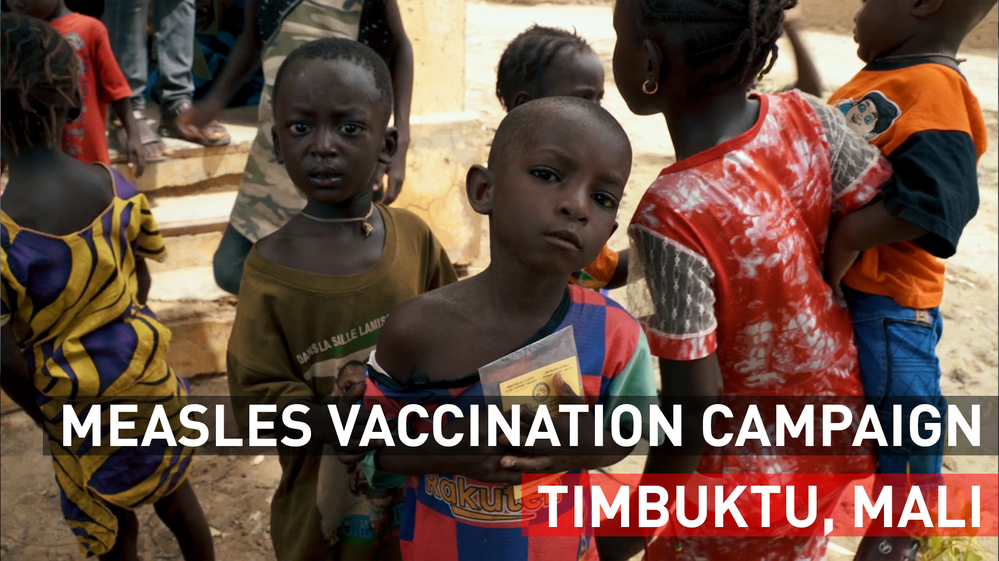
Measles vaccination campaign in Timbuktu
Healthcare and emergency responses in the north and centre
In Douentza, Mopti region, we support the main health centre and liaise with community health centres to ensure that complicated cases are transferred to Sévaré hospital. We’ve trained community health workers to treat people with common illness like malaria so they don’t have to leave their villages. We also support three community health centres in Boni, Hombori and Mondoro, and have launched community activities and mobile clinics.
In Koro, Mopti region, we provide medical and mental healthcare services and emergency responses through the referral hospitals in Koro, Bankass and Bandiagara. We also distribute kits of essential items to displaced people affected by conflict.
In Tenenkou, Mopti region, we opened a project in December 2016 to provide general medical care. Our work focuses on malaria prevention and treatment through mobile clinics and women’s health activities at Tenenkou health centre. Our mobile clinics are able to reach around 40 villages, including in areas controlled by armed groups.
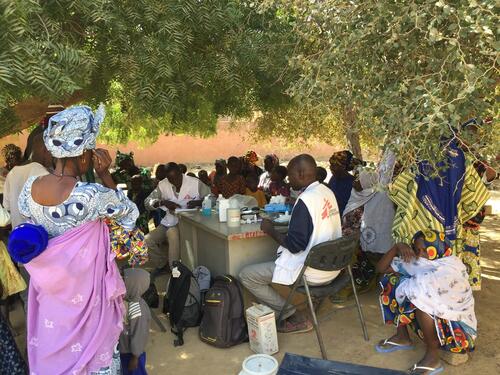
In Kidal region, we support two community health centres in Kidal town and five in the surrounding areas. We work with local health authorities to support the delivery of medical and mental healthcare, epidemiological surveillance and case referral. We develop strategies to reach nomadic communities in isolated areas and treat common diseases affecting pregnant women and children under the age of five at 30 nomadic sites.
In Ansongo, Gao region, we support the referral health centre and organise community activities with nomadic communities, including health education and treatment for malaria. Our teams provide healthcare and psychosocial support to displaced groups and local communities affected by conflict, and organise distribute essential non-food items when needed.
In 2019, we opened a project in Niono, Ségou region, near the Mauritanian border. Our teams work with the Ministry of Health to provide healthcare for pregnant women, and children under 15 at Niono hospital, support outlying health centres and make referrals to the hospital.
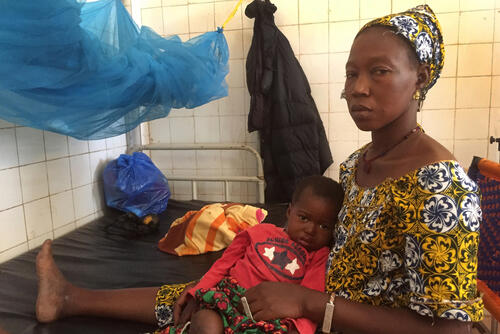
Paediatric care in the south
MSF has provided paediatric care for more than 10 years in Koutiala district (Sikasso region), which has the highest child mortality rate in Mali due to malaria and malnutrition.
We have developed preventive and curative responses to address nutritional needs and the most common diseases. Around 10,000 children under five years old are admitted to Koutiala paediatric hospital every year and thousands of paediatric consultations take place in MSF-supported health centres.
Most are conducted during the seasonal surge of malaria and malnutrition from June to October. Preventive activities, such as malaria prevention campaigns and distributions of mosquito nets, play an important role in reducing the number of severe cases and deaths.



